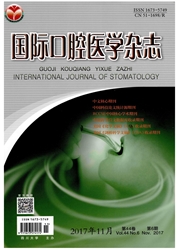

 中文摘要:
中文摘要:
舍格伦综合征(SS)是一种主要累及泪腺和唾液腺等外分泌腺的系统性自身免疫性疾病,分为原发性舍格伦综合征(pSS)和继发性舍格伦综合征(sSS)。辅助性T(Th)细胞中Th1与Th2细胞分化不平衡,Th17细胞与Treg细胞免疫失衡可能对pSS的发生及其发展产生影响。Th细胞分泌的白细胞介素(IL)-6、IL-17、IL-21和IL-23等细胞因子在pSS发病过程中和介导SS小腺体内炎症的过程中可能起着重要的作用。其中,有关Th17细胞及其分泌的细胞因子的研究,可为pSS的治疗提供更为有力和关键的证据。
 英文摘要:
英文摘要:
Sjogren syndrome(SS) is an autoimmune disease that always involves the lacrimal gland and salivary gland exocrine glands, divided into primary SS(pSS) and secondary SS(sSS). Unlike T helper(Th) cells(Thl and Th2 cells) imbalance, Th17 cell and Treg cell immune imbalance may have an impact on the occurrence and development of pSS. Zh cell secretes interleukin(IL)-6, IL-17, IL-21, and IL-23 and may play an important role in the development of the pSS and the inflammation-mediated in vivo SS glandulous. The study of Th17 cell and its secretion of cytokines can provide powerful and critical evidence for the treatment ofpSS in the future.
 同期刊论文项目
同期刊论文项目
 同项目期刊论文
同项目期刊论文
 期刊信息
期刊信息
